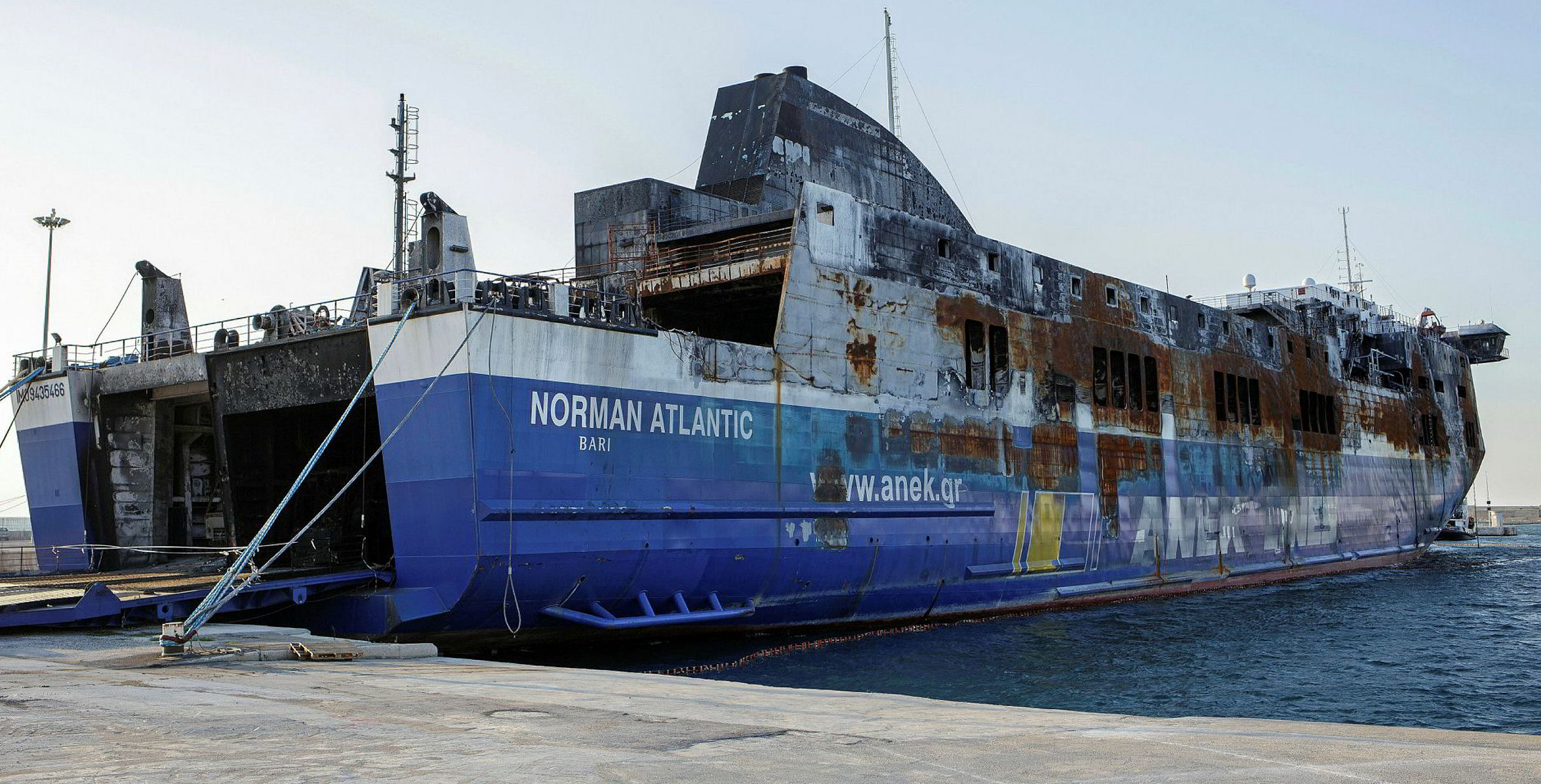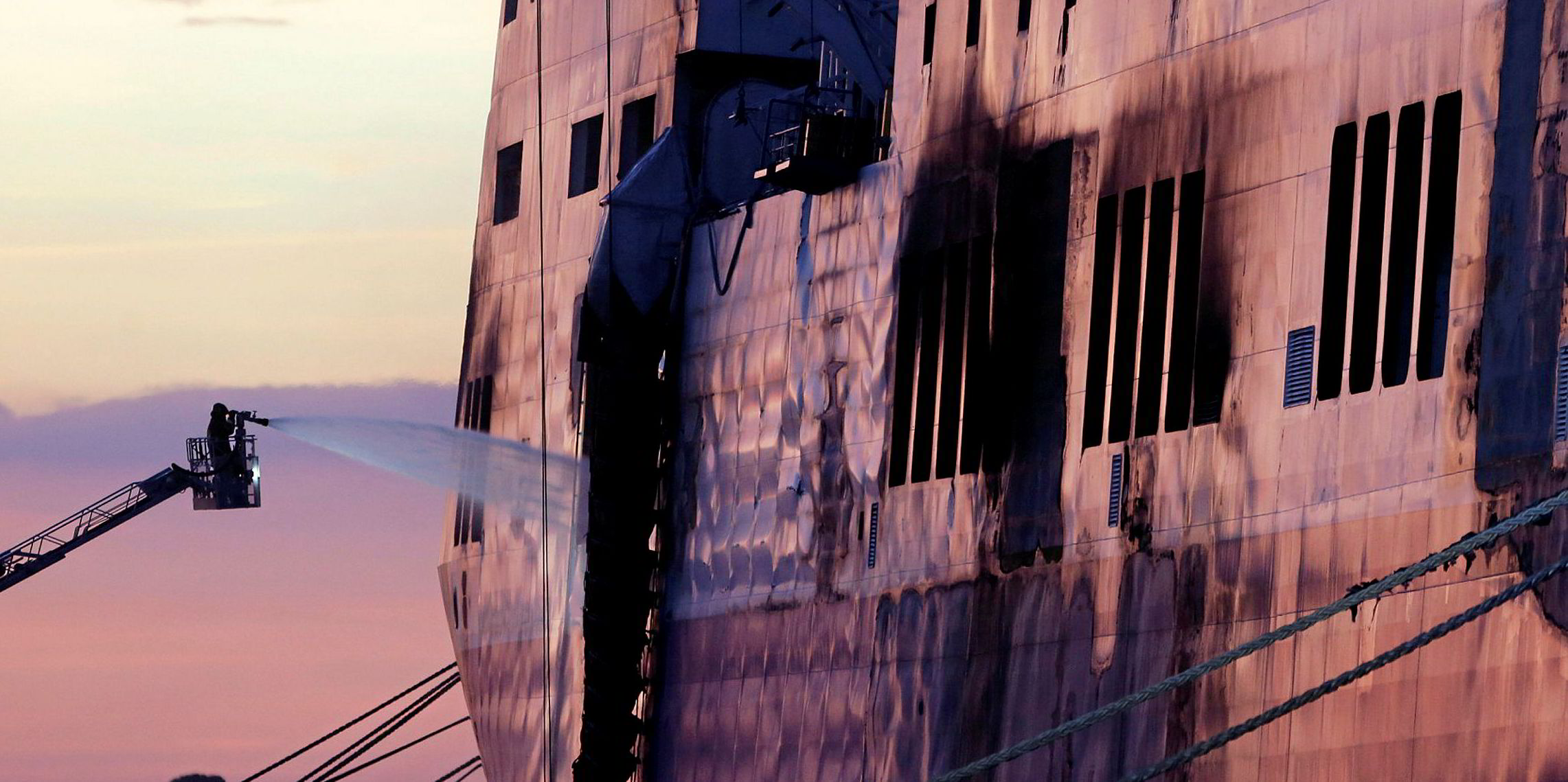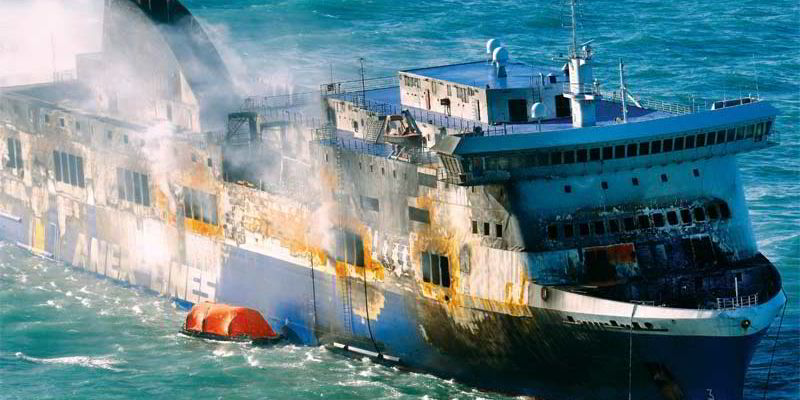The wreck of the ropax ferry Norman Atlantic has finally left the Italian port of Bari, bound for Turkey to be scrapped.
The vessel is being towed by the Greek-owned, 710-gt salvage tug Ionion Pelagos (built 1977) and was expected to arrive in Aliaga on Thursday this week.
Its final journey comes five years after it was involved in a devastating blaze.
2014 blaze
The 26,900-gt Norman Atlantic (built 2009) caught fire in the Adriatic on 28 December 2014. The flames spread rapidly through the ship and a major international effort was launched to rescue the 444 passengers and 55 crew.
Twelve people were confirmed as dead. An unknown number of illegal migrants who were believed to have been smuggled onboard in the cargo compartments of trucks were posted as missing.
The ship was owned at the time by Italy’s Visemar di Navigazione and chartered by ANEK Lines of Greece.
The hulk was towed to Bari, where it took firefighters almost two weeks to quell the blaze. The wreck was subsequently seized by local authorities as evidence in the criminal investigation that followed.
A report released by Italian authorities in 2017 blamed the fire on refrigerated trucks that had been haphazardly loaded onto the open upper car deck. The blaze could not be contained by the ship’s fire-suppression systems, and burned through the electrical system, causing a complete blackout onboard.

The report heavily criticised the chaotic response of the crew and the complete breakdown of the safety management system onboard.
A criminal trial of senior Visemar and ANEK executives, the ship’s master and several officers and crew opened in the Italian city of Bitondo in May this year. Thirty people have been indicted on charges of gross negligence.
Pending actions
Several civil lawsuits are still pending.
The disaster led safety experts and classification societies to question the firefighting and containment capabilities of ferries built with open-sided upper vehicle decks, where well-ventilated fires under a tight steel deck reflected heat and accumulated fire gases and were difficult to contain using CO2 systems.
The decision to hold the Norman Atlantic in Bari for so long drew complaints from cruise and ferry operators, who worried that the sight of the ship moored close to the passenger terminal was upsetting their passengers.
Two passengers onboard a British-owned cruiseship tried to sue the cruise operator for the emotional distress they allegedly suffered from being moored next door to a “death ship”.





